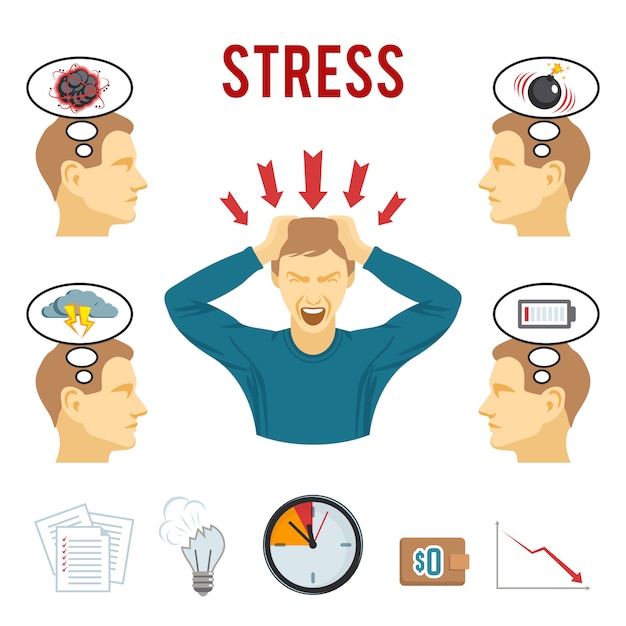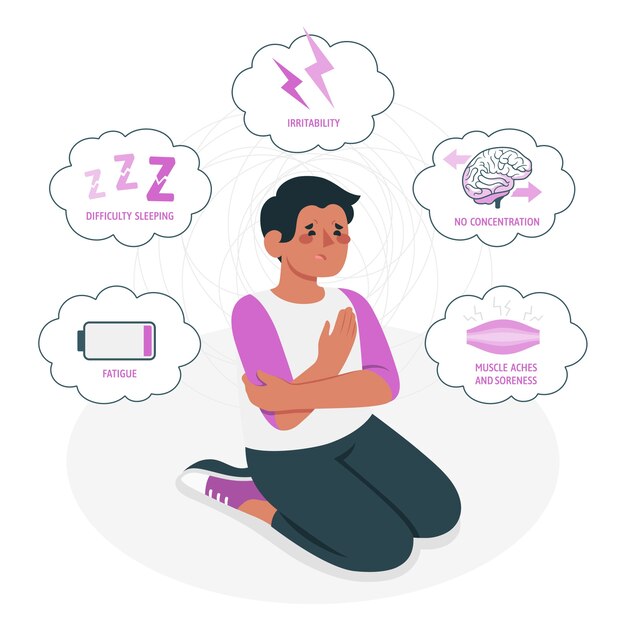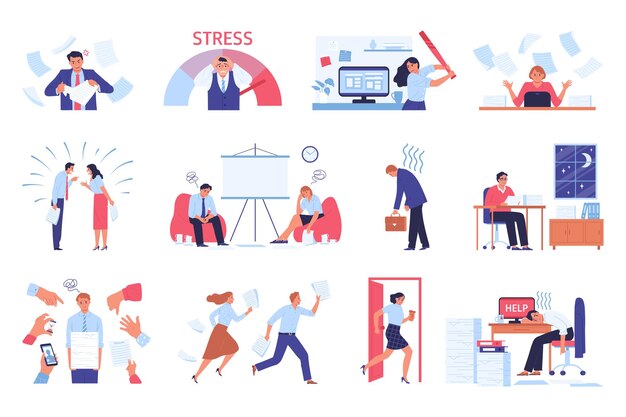In today’s fast-paced world, stress has become an all-too-common experience affecting millions worldwide. Understanding and managing stress is crucial for maintaining overall well-being and mental health. This comprehensive article delves into the intricacies of stress, its impact on our lives, and effective strategies to cope with it.
What is Stress?
Stress is the body’s natural response to environmental demands and pressures. When faced with challenging situations or perceived threats, the body activates the “fight or flight” response, releasing hormones like cortisol and adrenaline. While this response is essential for survival, prolonged stress can harm physical and mental health.

The Impact of Stress on Mental Health
Excessive or chronic stress can lead to various mental health issues, such as anxiety, depression, and burnout. It can disrupt sleep patterns, impair cognitive function, and negatively impact interpersonal relationships. Moreover, stress has been linked to an increased risk of developing serious conditions like heart disease, hypertension, and immune system disorders.
Recognizing the Signs of Stress
Recognizing the signs of stress is the first step in effectively managing it. Common symptoms of stress include:
- Persistent headaches
- Muscle tension and pain
- Fatigue and lethargy
- Changes in appetite or weight
- Irritability and mood swings
- Difficulty concentrating
- Social withdrawal

Coping Strategies for Managing Stress
- Mindfulness Meditation: By encouraging relaxation and awareness of the present moment, mindfulness meditation can help people feel less stressed. It involves focusing on your breath and acknowledging thoughts without judgment.
- Regular Exercise: Engaging in physical activity releases endorphins, the body’s natural stress-relievers. Regular exercise can improve mood and reduce tension.
- Healthy Diet: A well-balanced diet with plenty of fruits, vegetables, whole grains, and lean proteins can support the body during times of stress.
- Time Management: Prioritize tasks and set realistic goals to avoid feeling overwhelmed by a busy schedule.
- Social Support: Talking to friends, family, or a therapist can provide emotional support during stressful times.
Stress in the Workplace
Work-related stress is a significant concern for many individuals. Long hours, tight deadlines, and demanding work environments can take a toll on mental health. To address workplace stress, employers can implement the following:
- Encourage open communication between employees and management.
- Provide opportunities for skill development and career advancement.
- Promote work-life balance through flexible scheduling and remote work options.

Stress and Workout: do workout really kill stress?
Regular exercise or workouts are powerful tools for relieving stress and promoting overall well-being. When you engage in physical activity, your body releases endorphins, which are natural mood-enhancers that can help counteract stress and anxiety. Exercise also reduces the levels of stress hormones, such as cortisol, in the body, leading to a calmer and more relaxed state. Furthermore, working out provides a positive outlet for releasing pent-up tension and frustration, allowing you to clear your mind and gain perspective on stressful situations.
Whether it’s a brisk walk, a challenging cardio session, or a calming yoga practice, just a short workout can significantly reduce stress levels and leave you feeling refreshed and revitalized. Make exercise a part of your daily routine, and watch how it helps you effectively manage stress and enhance your overall quality of life.
The Importance of Self-Care
Practicing self-care is vital for maintaining mental and emotional well-being. It involves taking time for oneself to engage in activities that bring joy and relaxation. Whether it’s reading a book, spending time in nature, or pursuing hobbies, self-care can help reduce stress and improve overall quality of life.
Seeking Professional Help
If stress becomes overwhelming and begins to interfere with daily life, seeking professional help is essential. Mental health professionals, such as psychologists or counselors, can provide valuable guidance and support in managing stress and building coping skills.
Conclusion
In conclusion, understanding and managing stress are fundamental for leading a healthy and balanced life. By recognizing the signs of stress, adopting effective coping strategies, and practicing self-care, individuals can navigate life’s challenges with resilience and improve their overall mental well-being.









